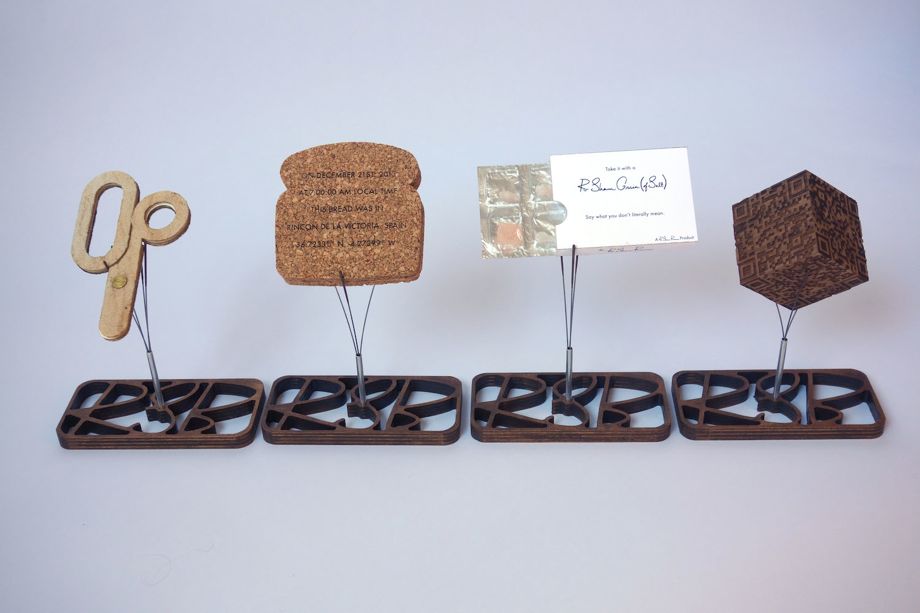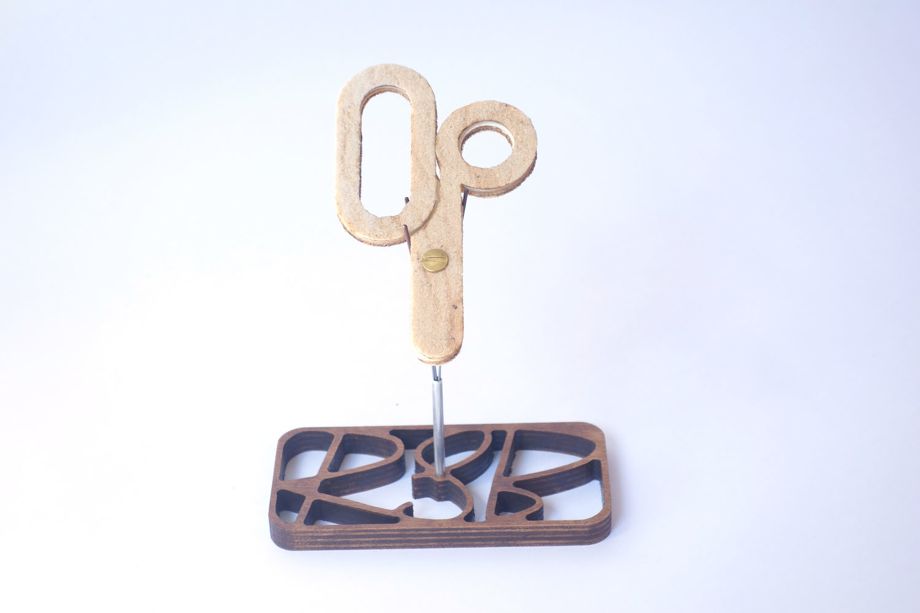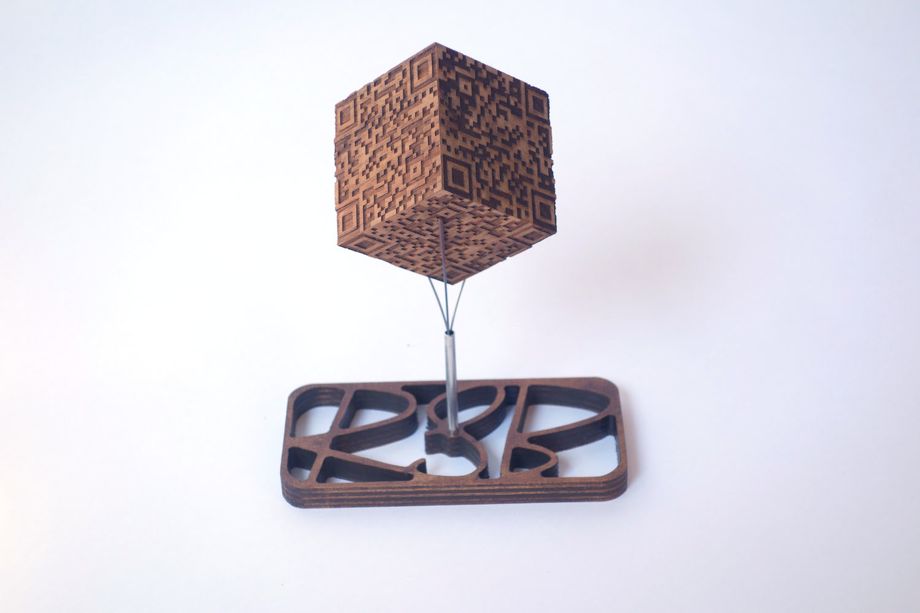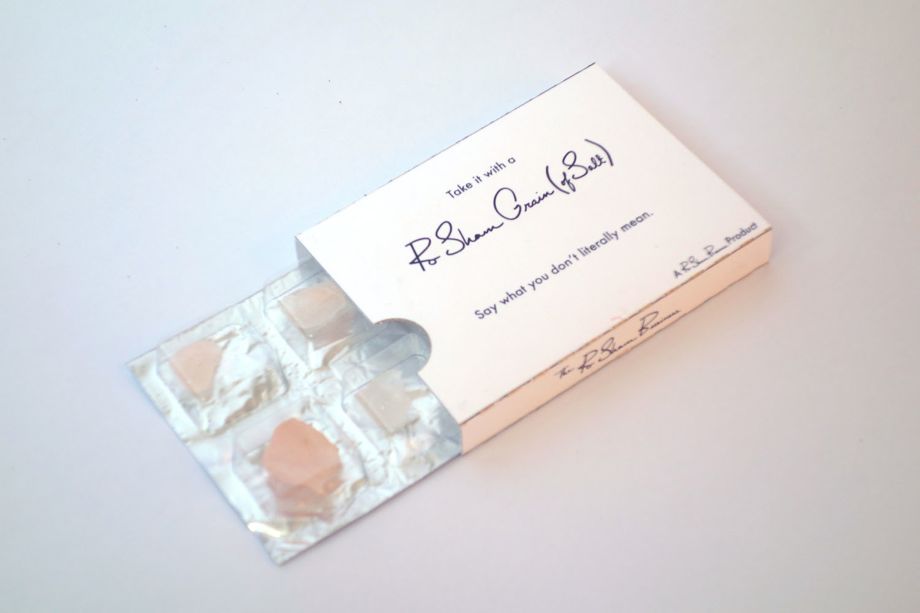High-Concept Stuff Designed to Remind People That They Don’t Need Stuff

Courtesy of Elliott Spelman
The other day I received an email from Elliott Spelman, a young guy looking to spread the word about a new design-related Kickstarter project.
“It's called The RoShamBusiness,” he wrote, “and our products are literal things. That is, we take ideas from language (idioms, figures of speech, etc.) and make them into consumer items. Rock paper scissors. Falling trees that no one has heard. Sandwiches with everything.”
He called them anti-products. “Their only real feature is to accurately reflect the piece of language they represent,” he said.
Spelman's Kickstarter proposal explains that the “RoShamBusiness is dedicated to giving new (and probably unnecessary) life to ideas that previously only existed as ideas. We’re taking concepts with a high degree of meaning and making objects with no degree of meaning. ... We want to make incredibly self-congratulatory, useless things that require a surprising amount of money to purchase.” Spelman said his target audience is people in their 20s and 30s with liberal arts educations who like puns and who “have highly attuned corporate BS detectors.”
Spelman, who graduated from University of Southern California with a degree in English and economics in 2011 and has a day job in marketing, told me in a follow-up email that the idea for a design business making useless things began as a joke based on the age-old childhood game of rock, paper, scissors.
“My friends and I had a running joke about a pair of scissors made out of rock and paper that was, in our minds, kind of the ‘ultimate product,’ ” Spelman said. “You could apply any advertising boast to it, and people would just want it more. We'd say things like, ‘Newer. Faster. More Powerful. RoShamBizzers. Now with more!’ For some reason that juxtaposition of advertising tropes with products that could never fulfill them was just really funny to us. So I kind of just ran with it.”

Courtesy of Elliott Spelman
An elaborate process went into creating RoShamBark, a $44 block of wood that was made by remotely staging the felling of a tree in the forest, then engraving a block of wood from the felled tree with a QR code of the sound it did or did not make.

Courtesy of Elliott Spelman
Here's audio from the making of the RoShamBark prototype:
Creating the $55 RoShamBamwich—an inedible sandwich with everything in it—entailed placing slices of bread at exactly the same moment on the ground in perfectly antipodal locations, one near Kuaotunu, New Zealand, and the other in Rincón de la Victoria, Spain. (Details of that adventure can be found on the RoShamBusiness website.)
Last but not least, their rather self-explanatory RoShamGrain(ofSalt), grains of salt packaged like pills, is being billed as “the greatest product of all time.”

Courtesy of Elliott Spelman
In the works are the RoShamBandwagon: “A music-playing wagon that's impossibly hard to get on to and only has room for one person,” and the RoShamBackOfYourHand: “A semi-functional watch that takes pictures of the back of your hand and posts them to Facebook so everyone can know the back of your hand like the back of your hand.”
Spelman said the products he’s offering are the antithesis of something like the wildly overfunded Kickstarter project that will manufacture water bottles in A4 and A5 paper dimensions to slot into your work bag. “It's incredibly well-designed,” Spelman said. “It's very beautiful. People are drawn to that. ... Now with the RoShamBusiness, the freely acknowledged lack of a practical application is off-putting. If the question of ‘Why would I want this?’ is allowed to echo unanswered in the buyer's mind, that's an interesting thing. I think it actually angers/upsets some people. Or at least I hope it does.”
I couldn’t figure out whether Spelman was taking a moral stance against consumerism or simply trying to find a way to get in on the crowdsourcing action with an elaborate intellectual disclaimer. Perhaps the RoShamBusiness is really a business idea more than a thought experiment. Or perhaps Spelman launched the campaign to sell clever but useless products to make his perfectly valid points about consumerism (and crowdfunding campaigns). The RoShamBark might not be all that different from a useless unigadget sold on a shopping channel, apart from the knowing irony and cleverness. And perhaps appealing to consumers’ intellect is just another way of tricking them into paying him for what is possibly an elaborate joke.
“I think it's important to be ambiguous about the degree to which I'm ‘serious,’ ” Spelman said. “Chuck Klosterman has a theory that for a piece of satire to be successful: 35% of people have to be in on the joke and 65% of people have to be oblivious. I'm not sure the RoShamBusiness will match that ratio, but maybe! Successful satire often has to take the form of the medium that its message is criticizing,” he said, citing The Daily Show and the Onion as examples.
“I have this romantic notion of the RoShamBusiness providing kind of like a ‘poison pill’ for useless junk,” he said. “On the website there's a line about the RoShamBizzers being ‘the last product you'll ever need to buy.’ And I really would like it to act as a reminder that there are more important things than stuff. The RoShamBusiness stands for the fact that IDEAS > PRODUCTS. More meaning is to be found in the world of ideas than in the world of physical goods, and we shouldn't get confused about that.”
